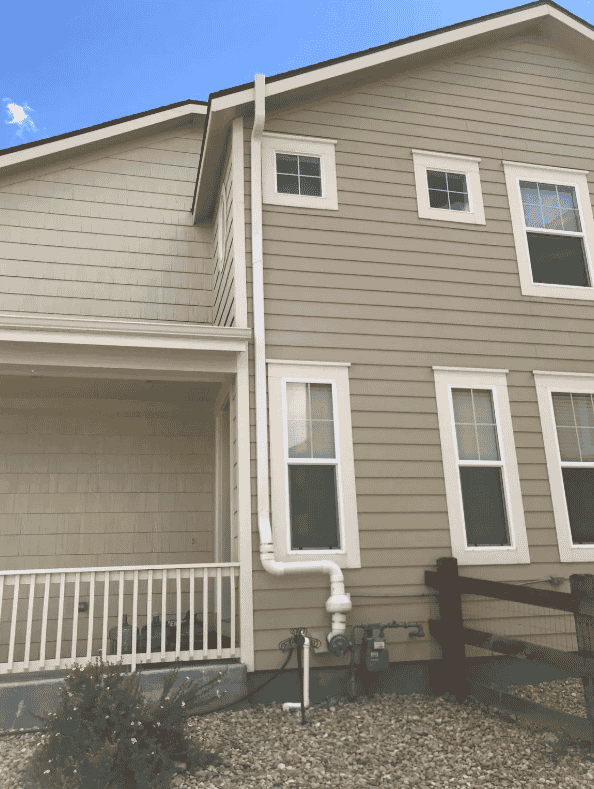When I first looked for home inspectors Fort Morgan CO, I assumed it would be a simple checklist: roof, plumbing, and electrical. But as I dug deeper, I realized the best inspections also cover hidden dangers, like moisture, mold, and air quality issues. Meanwhile, friends in Fort Collins kept emphasizing the importance of radon mitigation Fort Collins CO, which made me understand that a safe home isn’t just about visible repairs—it’s also about invisible hazards like radon gas.
Table of Contents
When I first looked for home inspectors Fort Morgan CO, I assumed it would be a simple checklist: roof, plumbing, and electrical. But as I dug deeper, I realized the best inspections also cover hidden dangers, like moisture, mold, and air quality issues. Meanwhile, friends in Fort Collins kept emphasizing the importance of radon mitigation Fort Collins CO, which made me understand that a safe home isn’t just about visible repairs—it’s also about invisible hazards like radon gas.
That’s where Lords Radon comes in. They’re a Colorado-based company that specializes in radon mitigation, air quality improvement, and thorough home inspections. Their team helps homeowners identify risks and implement solutions that protect both the structure and the people living inside. With years of experience across Northern Colorado, they know the local soil, weather, and construction patterns that affect every home. You can learn more about their services at lordsradon.com.
This guide shares everything I learned about hiring inspectors in Fort Morgan, understanding radon risks in Fort Collins, and maintaining a healthy, safe home environment.
Step 1: Start with a Comprehensive Home Inspection
The first step to protecting your home is scheduling a detailed inspection. Home inspectors in Fort Morgan check structural integrity, plumbing, electrical systems, HVAC, and roofing. But the most thorough inspectors also examine crawl spaces, attics, and ventilation systems.
Older homes in Fort Morgan often have subtle foundation cracks that can lead to long-term structural issues. Newer homes might hide moisture or construction defects behind walls or under floors. A proper inspection report will include photos, explanations, and recommended fixes.
Remember, the goal isn’t just to list problems—it’s to understand your home’s health and plan maintenance accordingly.
Step 2: Focus on Crawl Spaces and Moisture Control
Crawl spaces are one of the biggest hidden hazards in Colorado homes. Moisture can accumulate under your floors, leading to mold growth and weakened foundations. Inspectors often measure humidity and check for standing water, which is crucial in Fort Morgan where soil moisture varies seasonally.
If issues are detected, a crawl space vapor barrier can help. It seals the ground, prevents water from rising into your home, and reduces radon infiltration. This step alone can dramatically improve indoor air quality and prevent costly repairs over time.
Step 3: Test for Radon Early
Radon is an invisible, odorless gas that seeps from the ground into homes. Long-term exposure increases lung cancer risk. Fort Collins, in particular, has higher radon levels due to local geology. Even if a home looks perfect, radon testing is critical.
Many home inspectors include this as part of their service, but it’s also something a radon specialist like Lords Radon can handle separately. They use precise monitors to detect radon levels and determine if mitigation is necessary.
Step 4: Understand the Radon Mitigation Process
If your radon levels are above the EPA recommended 4.0 pCi/L, mitigation is required. In Fort Collins, mitigation systems often involve installing a vent pipe from beneath the foundation that directs radon outside. Fans keep the system active, and monitoring ensures it continues to work.
A professional team like Lords Radon ensures the system is installed correctly, sealed properly, and maintained for long-term performance. It’s not just about putting a pipe in the ground—it’s about creating a healthy home environment.
Step 5: Ask the Right Questions Before Hiring
Not every inspector or mitigation company provides the same level of service. Ask about experience, certifications, and local knowledge. For inspectors, request details about what’s included in their report and whether radon testing is standard.
For radon mitigation, ask about the system’s expected lifespan, maintenance needs, and guarantees. Understanding these details helps you make informed decisions and avoid surprises later.
Step 6: Review Reports Thoroughly
After inspections or testing, you’ll receive a report. Take time to read it carefully. Photos and descriptions highlight areas needing attention, while notes about urgency help you prioritize repairs.
If radon levels are high, the report should include recommended mitigation steps. Many homeowners overlook small issues, but addressing them early saves money and protects health.
Lords Radon provides reports that are easy to understand and actionable. They explain each finding and suggest clear next steps, which makes planning repairs and mitigation easier.
Step 7: Combine Inspections with Preventive Measures
Once you’ve identified issues, address them promptly. Seal foundation cracks, improve ventilation, install crawl space barriers, and mitigate radon if needed. These steps reduce long-term risks and increase home value.
Preventive measures also include regular maintenance. Inspecting your home annually helps catch new issues before they grow. Homes in Fort Morgan and Fort Collins face different environmental challenges, so local expertise is essential for effective preventive care.
Step 8: Understand the Cost vs. Value
Home inspections and radon mitigation have upfront costs, but they’re investments in safety. Detecting a minor foundation crack or radon issue early can prevent thousands in repairs later.
Homeowners often worry about expense, but the cost of ignoring these hazards is higher. Safety, health, and home value all benefit from thorough inspections and mitigation systems.
Step 9: Recognize Red Flags in Inspections
A rushed inspection or vague report is a warning sign. Professional inspectors should be thorough, communicate clearly, and answer all your questions. Photos, detailed notes, and clear explanations indicate quality service.
Similarly, radon mitigation systems should be professionally installed and certified. Avoid companies that offer quick fixes without testing or long-term monitoring.
Step 10: Make Safety and Health a Long-Term Priority
The ultimate goal of inspections and radon mitigation is protecting your family. Air quality, structural integrity, and moisture control all affect how comfortable and safe your home is.
Lords Radon approaches home safety holistically, combining inspections, mitigation, and follow-up services to maintain healthy living spaces. Their team ensures your home is safe today and stays safe for years.
By following these steps, you can confidently purchase, maintain, or upgrade your home in Fort Morgan and Fort Collins, knowing that you’ve addressed both visible and invisible hazards.
Final Thoughts
Hiring experienced, local inspectors and mitigation specialists is essential for protecting your home and family. Homes in Fort Morgan need detailed inspections, and homes in Fort Collins benefit from proactive radon mitigation.
Regular check-ups, preventive measures, and professional guidance create peace of mind. A well-maintained home isn’t just a financial investment—it’s a safe, healthy place to live.
When considering inspections or radon mitigation, focus on thoroughness, experience, and clear communication. A partnership with trusted experts like Lords Radon ensures you’re taking the right steps for your home’s long-term safety.





More Stories
The Ultimate Guide to 3M PPF and Professional Auto Detailing
What is Photometric Lighting Design and Why Does Your Project Need It?
Who Can You Trust When You Decide to Buy Palladium Bars Online?